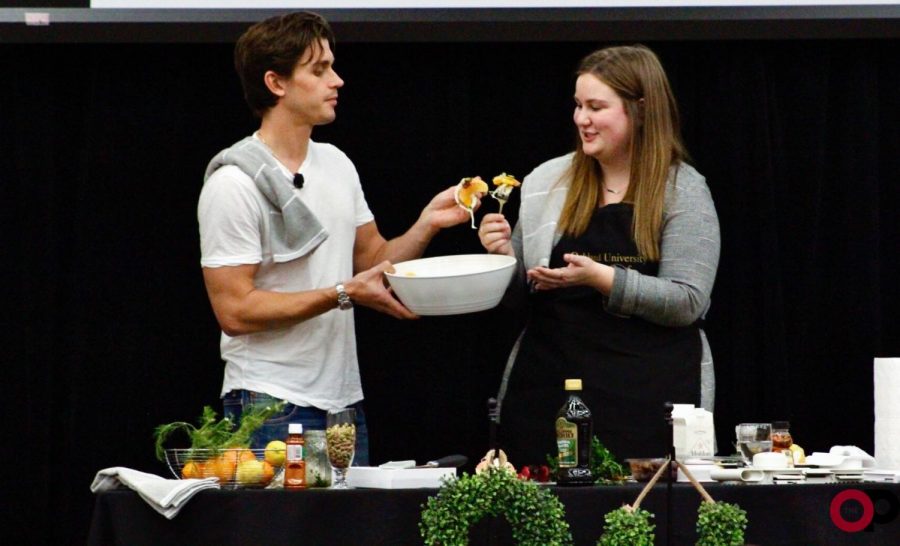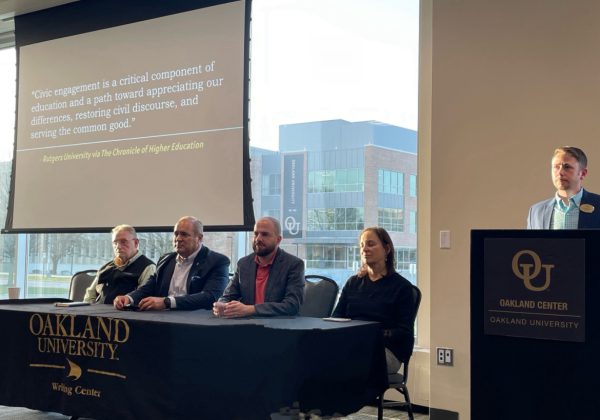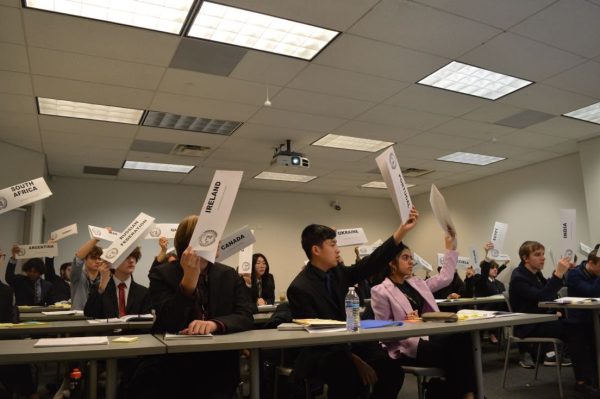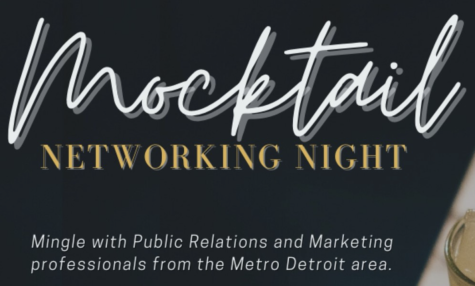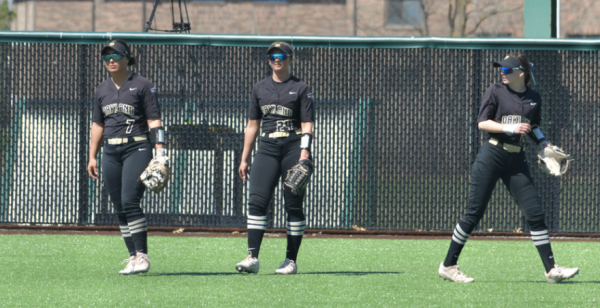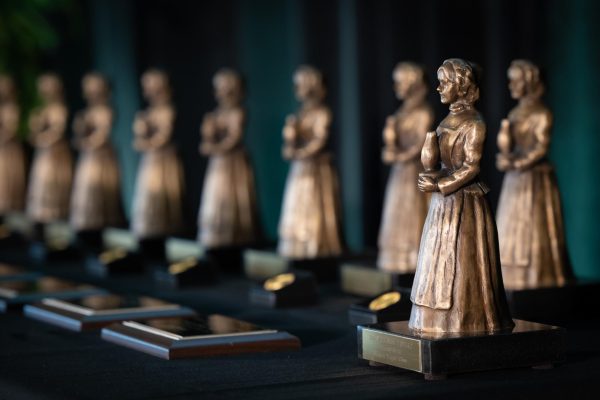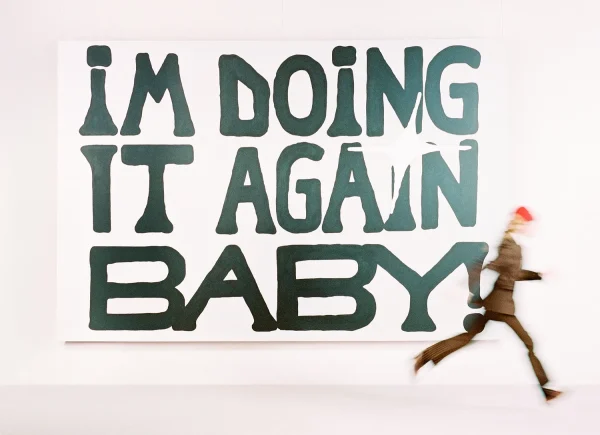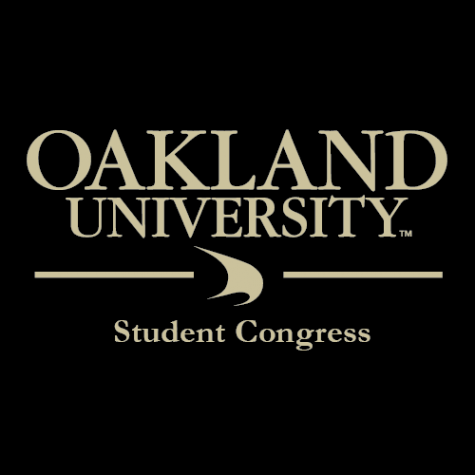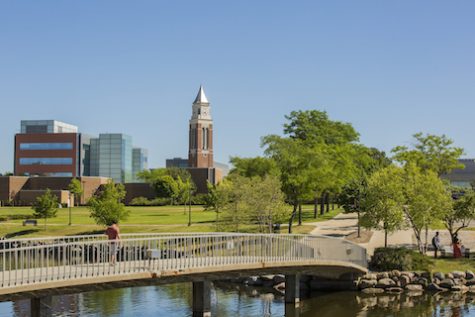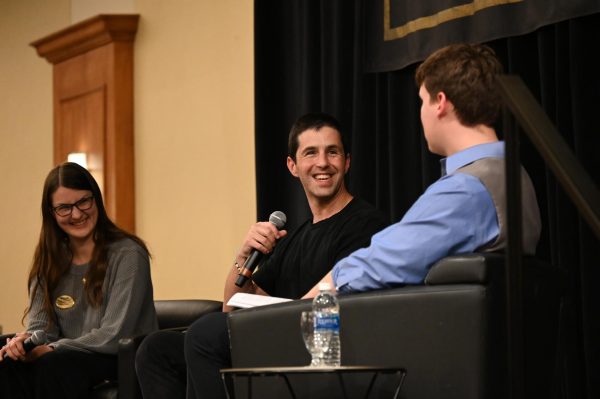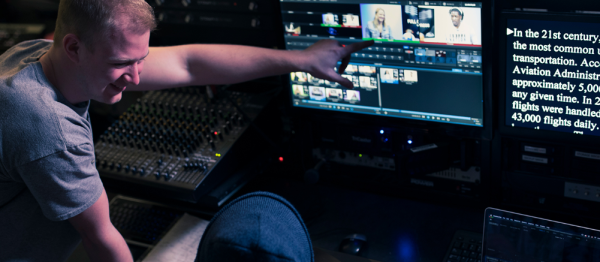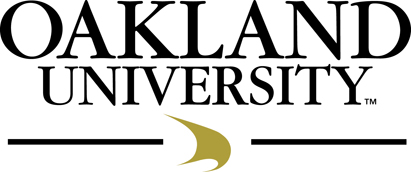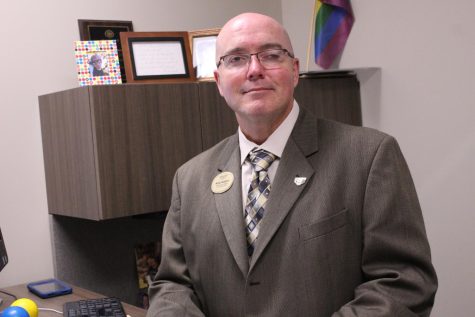‘Queer Eye’ star Antoni Porowski visits campus, talks visibility in media and the importance of kindness
“Queer Eye” star Antoni Porowski and Student Life Lecture Board Associate Chair Olivia Braun prepare a citrus and fennel salad.
In spite of the stress of midterms and homecoming festivities, things kept getting better for Oakland University students on Wednesday, Oct. 9, when the campus community was treated to a visit from “Queer Eye” star Antoni Porowski.
Porowski’s appearance on campus came with relatively short notice. Initially, his “Queer Eye” castmate Karamo Brown was supposed to visit campus, but was forced to cancel his appearance due to scheduling conflicts, as he is currently competing on “Dancing with the Stars.”
During his visit, the reality TV star and food and wine connoisseur spoke to a packed crowd about his experiences as a member of the LGBTQIA+ community, representation in media and the culinary arts. Just last month, Porowski released his first cookbook, “Antoni in the Kitchen,” and has since embarked on a promotional tour in support of the book. His time at OU included a cooking demonstration with Student Life Lecture Board Associate Chair Olivia Braun, during which they prepared a citrus and fennel salad that appears in the book.
Porowski took an interest in cuisine at a young age, but ultimately pursued a degree in psychology during his time in college. He went on to be mentored by Ted Allen, the food and wine expert on the original version of “Queer Eye.” Much of his talk related to his exploration of his own diverse passions and how that shaped his career path.
“Food was always sort of at the center of everything, and I realized that this is actually something that I’m incredibly passionate about,” he said. “Part of me never thought I’d end up having a job that I actually really love that’s tied into my intrinsic need to belong and to create something for other people.”
One of the ways in which Porowski feels his work has benefited others is through the positive impact “Queer Eye” has had on viewers in times of distress, specifically with regard to the country’s polarized political climate.
“It brought something that I think the country really needed,” he said of the show. “It’s the kind of programming that I want to watch. When I watch TV, I don’t want to check out. I want to check in to my feelings. I like watching things that make me think, things that make me feel, and I think ‘Queer Eye’ is that.”
While his talk largely focused on his own work, Porowski was eager to recommend other pieces of media that he was particularly moved by — he’s currently binging the HBO series “Euphoria” and wants to walk down the Seine in Paris while listening to “Death By a Thousand Cuts” and “Cornelia Street,” both cuts from close friend Taylor Swift’s latest album.
“I love a segway and I have very severe ADHD,” he quipped at the beginning of his talk, prompting a plethora of laughs from the audience.
Porowski also focused heavily on issues relating to members of the LGBTQIA+ community during his talk, offering advice to OU students who might be struggling with their own sexual identities and their place within society.
“Experiences are different, but our feelings are all the same — there’s a limited number of them and we’re not terminally unique,” he said. “All of us experience the same shit, so talk to somebody about it.”
“Queer Eye” has been praised for enhancing representation in media. Porowski largely credited the acceptance of LGBTQIA+ individuals in popular media to the success of shows like “Will and Grace” and the original adaptation of “Queer Eye,” which ran from 2003 through 2007.
While he admitted that he’s proud of the “open dialogue” surrounding representation that the series has created, Porowski believes it’s only the beginning of the conversation.
“Visibility is incredibly important,” he said. “There’s a lot more of it now than there was for sure, but we’re not there yet … you look at any type of network and it’s still mostly cisgender white people.”
In addition to Porowski, the show’s main cast includes Brown, Tan France, Bobby Berk and Jonathan Van Ness, all of whom are openly gay. In spite of this, Porowski argued that the “Fabbers” — as they’re often collectively referred to — are “diverse-ish.”
“I really hope that shows like ‘Queer Eye’ kind of encourage people to create their own content, whether it’s a podcast or writing or whatever that medium is, because we’re just five perspectives,” he said. “It’s still three white guys and two non-white people. There’s still so many other perspectives and stories that I think need to be shared, and I think we have made a lot of advancements, but we have a really long way to go.”
Throughout his talk, Porowski also expressed the importance of self-love — “how are you going to love someone if you can’t love yourself?” — and offered some advice for college students that his father imparted to him: “Be humble and don’t be a dick.”
More than anything, though, he stressed the importance of kindness, denouncing “cancel culture” and encouraging attendees to show more compassion toward their peers.
“College is fucking hard — you have tuition, are you happy with your major, are your parents happy with your major … probably not,” he said. “Things are just stressful and hard. Just remember to be nice to each other, and talk to the lonely people, ’cause we’re really not meant to be alone on this earth.”


